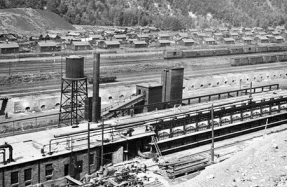
“Nautical heritage” usually conjures up images of tugboats, ocean liners, and sailing ships on salt water, a stereotype regularly reinforced by maritime museums. However, the scope of nautical heritage encompasses other significant historical themes, including links to agriculture, mining, industry, fishing, settlement, communication, recreation, research, and international relations. In time, our nautical heritage is an unbroken flow of events from millennia past to the present. Our view of this heritage is slowly but positively evolving with broadened awareness guided by nautical history enthusiasts.
Origins
The British Columbia Historical Federation’s predecessor, the British Columbia Historical Society, struck a Marine Committee led by Judge Frederic William Howay that focused on preservation and research, and their work in lobbying for the establishment of a provincial maritime museum eventually led to the creation of the Maritime Museum of British Columbia, which was intended to fill this provincial role. The committee also worked with Victoria’s Thermopylae Club in ongoing campaigns to support the preservation of the world-famous dugout canoe that had voyaged to London from Victoria. This museum has existed for more than 65 years and




